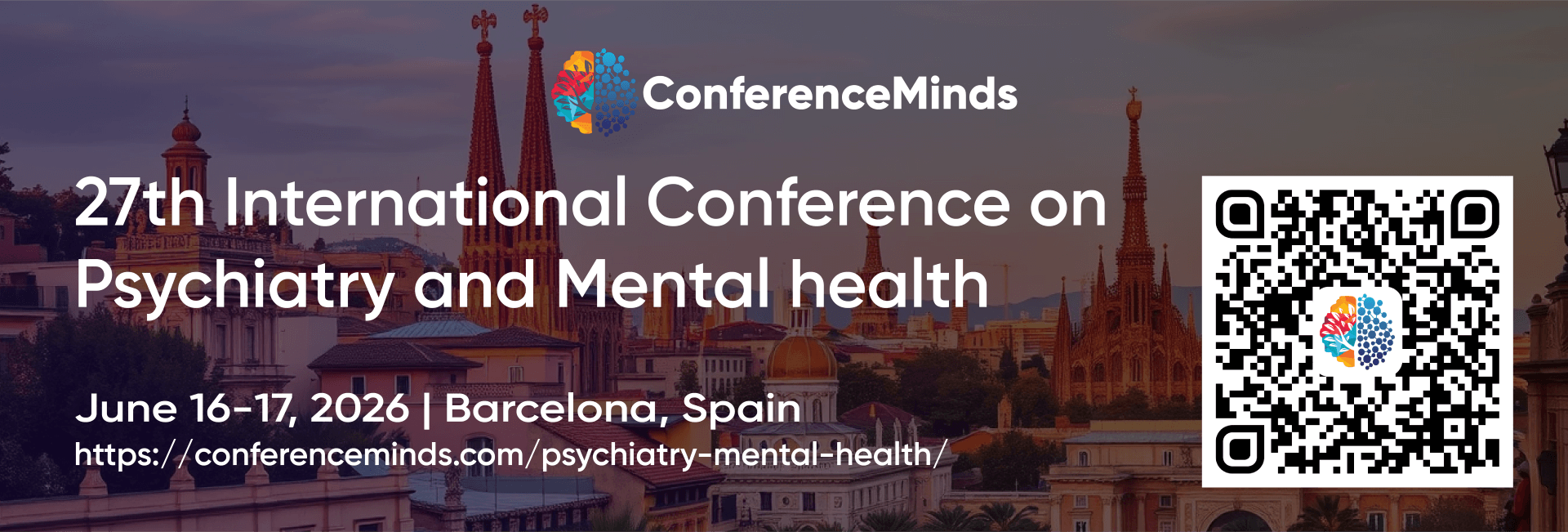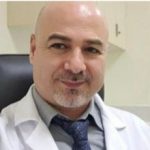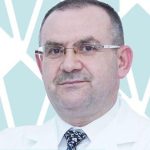Event Date
June 16-17, 2026
Venue
Barcelona, Spain
– Previous Conference Performers / Professionals From Around The Globe –
Media Partners/Collaborator
A huge thanks to all our amazing partners. We couldn’t have a conference without you!



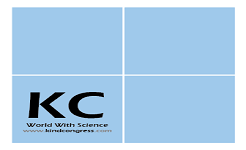



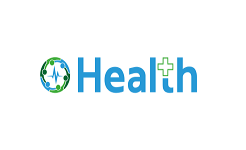


Sponsors/Exhibitors
A huge thanks to all our amazing partners. We couldn’t have a conference without you!


About Conference
The 27th International Conference on Psychiatry and Mental Health will be held on June 16-17, 2026, in Barcelona, Spain. This conference will bring together a global community of psychiatrists, psychologists, mental health professionals, researchers, and students to address the latest developments in the field of psychiatry and mental health. It will provide a platform to discuss advancements, share insights, and explore challenges in the treatment and understanding of mental health conditions.
Key Themes and Focus Areas
The conference will cover a wide range of topics related to psychiatric disorders, mental health challenges, and therapeutic innovations, including:
- Mental Health and Well-being: Addressing the growing importance of mental health in overall well-being, exploring new perspectives on mental health maintenance, and preventative strategies.
- Psychiatric Disorders: In-depth discussions on conditions such as depression, anxiety, schizophrenia, bipolar disorder, and other mood and personality disorders.
- Psychopharmacology: The role of medications in the treatment of mental health disorders, including the latest advancements in psychopharmacology and innovative drug therapies.
- Psychotherapy and Counseling: Exploring the role of different psychotherapy modalities, such as Cognitive Behavioral Therapy (CBT), Dialectical Behavior Therapy (DBT), and others, in treating various mental health conditions.
- Neuroscience and Mental Health: Understanding the biological and neurological underpinnings of mental health disorders, with an emphasis on brain chemistry, genetic factors, and neurological findings.
- Child and Adolescent Psychiatry: Addressing the mental health challenges faced by children and adolescents, and the unique approaches required for effective treatment in these age groups.
- Psychiatric Rehabilitation and Recovery: Focusing on strategies for mental health recovery and rehabilitation, including support for individuals with severe and persistent mental illnesses.
- Mental Health Policies and Global Health: Exploring global mental health challenges, policy improvements, and initiatives aimed at increasing access to care, reducing stigma, and improving mental health services worldwide.
Objective
The aim of the conference is to promote dialogue, education, and collaboration in the field of mental health, while offering a platform to discuss groundbreaking research, innovative treatments, and global mental health initiatives. It will also provide a space for networking and collaboration to shape the future of psychiatric care and research.
Benefits of Attending
- Learning from Experts: Attendees will have the opportunity to hear from leading figures in psychiatry, mental health, and neuroscience.
- Presenting Research: Researchers are invited to submit and present their latest findings, contributing to the global knowledge pool on mental health topics.
- Networking: Opportunities to connect with professionals, institutions, and organizations in the mental health field.
- Collaborations: Opportunities to form collaborative relationships with researchers, practitioners, and industry leaders.
Who Should Attend?
- Mental Health Professionals: Psychiatrists, psychologists, social workers, counselors, and mental health therapists.
- Researchers and Academics: Those involved in psychiatric and mental health research, looking to share their findings and discover new areas of study.
- Healthcare Providers: Medical doctors and healthcare providers interested in understanding psychiatric issues and their intersection with overall health.
- Students and Trainees: Those studying mental health, psychiatry, and psychology who are eager to gain knowledge from experts in the field.
- Policy Makers and Advocates: Individuals involved in mental health policy, advocacy, and public health initiatives.
- General Public: Anyone interested in mental health awareness, improving care, and reducing the stigma associated with mental illness.
Why join?
Learn and share through Workshops and Interactive Sessions
Workshops and interactive sessions involve extensive interaction between the presenters and delegates around an idea or hands-on experience of a practice. These interactive sessions may take the form of a panel, staged conversation, or debate – all involving substantial interaction with the participants. Therefore a variety of sessions, keynote lectures, symposiums, workshops, and poster presentations will give you an opportunity to share and present research to your colleagues from around the world.
Meet your subject matter experts
Subject Matter Experts will lead you in current research & development. They help you with research queries, and content, identify the objectives, and ensure your research is scientifically acceptable.
Networking/ round table discussions
Psychiatry and Mental Health 2022 has its specially designed networking and round table discussion session, which brings together clinicians, health professionals, and patients on the front lines of psychiatric care to learn from each other and build a professional network and collaboration.
Who can join the event?
Psychiatry and Mental Health 2021, provides the participants with different modes or ways to participate under either academic/student/business category
- Speaker (oral presentation): 25-30 minutes (only one person can present)
- Speaker (workshop): 45-50 minutes (more than 1 can present)
- Speaker (special session): 45-50 minutes (more than 1 can present)
- Speaker (symposium): more than 45 minutes (more than 1 can present)
- Delegate (only registration): will have access to all the sessions with all the benefits of registration
- Poster presenter: can present a poster and avail the benefits of delegate
- Remote attendance: can participate via video presentation or e-poster presentation
- Exhibitor: can exhibit his/her company’s products by booking exhibitor booths of different sizes
- Media partner
- Sponsor
- Collaborator
For Researchers & Faculty:
- Speaker Presentations
- Poster Display
- Symposium hosting
- Workshop organizing
For Universities, Associations & Societies:
- Association Partnering
- Collaboration proposals
- Group Participation
For Students & Research Scholars:
- Poster Competition (Winner will get Best Poster Award)
- Young Researcher Forum (YRF Award to the best presenter)
- Student Attendee
- Group Registrations
For Business Delegates:
- Speaker Presentations
- Symposium hosting
- Book Launch event
- Networking opportunities
- Audience participation
For Companies:
- Exhibitor and Vendor Booths
- Sponsorships opportunities
- Product launch
- Workshop organizing
- Scientific Partnering
- Marketing and Networking with clients
Session and Tracks
Track 1: Psychiatry and Psychiatric Disorders
Psychiatry is a medical specialty that focuses on mental, emotional, and behavioral disorders. The term “psychiatric disorder” encompasses a broad range of conditions affecting a person’s thoughts, feelings, behavior, or mood. Referred to as “mental illness” or “mental health conditions,” psychiatric disorders can significantly impact an individual’s ability to function at work or school and maintain healthy social relationships. It’s essential to note that psychopathy is not a weakness but a medical condition. Psychiatric disorders are treatable, with effective treatments varying based on the specific disorder and the severity of symptoms.
- Anxiety disorders
- Stress disorders
- Major depressive disorder
- Mood disorders
- Eating disorders
- Schizophrenia
- Schizoaffective disorder
Track 2: Brain Disorders
The brain serves as our body’s control center, part of the central nervous system that includes the spinal cord and an extensive network of nerves and neurons. Brain disorders encompass various conditions or disabilities that impact brain function, affecting areas such as memory, sensation, and personality.
- Alzheimer’s Disease
- Dementias
- Brain Cancer
- Epilepsy and Other Seizure Disorders
- Mental Disorders
- Parkinson’s and Other Movement Disorders
- Stroke and Transient Ischemic Attack (TIA)
Track 3: Psychology & Mental Health
Mental health influences emotional, psychological, and social well-being, shaping how individuals think, feel, and act. It plays a vital role at every life stage, from childhood through adulthood, affecting how we handle stress, relate to others, and make decisions.
Track 4: Counselling & Psychotherapy
Counseling typically addresses short-term issues with straightforward resolutions, while psychotherapy involves a more in-depth exploration of an individual’s psychological history and long-term treatment. Counseling deals with present problems that can be easily resolved, whereas psychotherapy examines a person’s psychological history extensively.
Track 5: Child and Adolescent Psychiatry
Child and adolescent psychiatry focus on the diagnosis, treatment, and prevention of mental disorders in young individuals and their families. It explores the biopsychosocial factors influencing psychiatric disorders and utilizes psychotherapy and/or medication for treatment.
Track 6: Stress, Depression, and Anxiety
Stress, depression, and anxiety are distinct experiences, not interchangeable. Seeking professional help allows individuals to identify and address these issues effectively. Many people may exhibit elements of depression and anxiety without necessarily receiving a clinical diagnosis or requiring medication.
Track 7: Neuropsychiatry
Neuropsychiatry & Neuropsychology investigate how brain structure and function relate to specific mental processes and behaviors. This field aims to understand how behavior and cognition are affected by brain functioning, contributing to the diagnosis and treatment of neurological disorders.
Track 8: Autism Spectrum Disorder
Autism spectrum disorder involves developmental challenges affecting social interaction and communication, accompanied by restricted and repetitive behavior patterns.
Track 9: Addiction, Addictive Disorders, and Recovery
Addiction is a chronic brain condition influenced by both genetic and environmental factors, involving substance use or compulsive actions despite harmful consequences. The concept of addiction now extends beyond substances to include behaviors, emphasizing the need for comprehensive treatment approaches.
Track 10: ADHD & Learning Disorders
ADHD is a medical condition affecting attention, self-control, and the ability to sit still. Learning disorders are cognitive conditions impacting the brain’s ability to process information, affecting areas such as reading, writing, and comprehension.
Track 11: Geriatric Psychiatry
Geriatric Psychiatry addresses mental health issues in older adults, including anxiety, depression, personality disorders, dementia, and substance abuse.
Track 12: Suicide & Prevention
Suicide prevention efforts aim to reduce the risk of suicide through interventions at individual, relationship, community, and societal levels. Treatment for mental illness, improving coping strategies, and providing hope for a better life are essential components.
Track 13: Mental Health
Mental health encompasses emotional, psychological, and social well-being, influencing thoughts, feelings, and actions across all aspects of life.
Track 14: Adult Mental Health
Adult mental health covers a range of conditions such as depression, anxiety, bipolar disorder, and schizophrenia, impacting the emotional, psychological, and social well-being of adults.
Track 15: Child and Adolescent Mental Health
Focusing on individuals aged 0-18, child and adolescent mental health addresses issues like ADHD, autism, anxiety, and depression, emphasizing early intervention, therapy, parental support, and school-based interventions.
Track 16: Mental Illness
Mental illness refers to various conditions affecting a person’s thinking, mood, and behavior, including depression, schizophrenia, anxiety disorders, and bipolar disorder. Treatment involves a combination of therapy, medication, support groups, and lifestyle changes.
Track 17: Impulse-Control Disorder
Impulse-Control Disorder involves difficulties in resisting impulsive urges or behaviors, such as intermittent explosive disorder, kleptomania, and pyromania. Treatment includes therapy, medication, and coping strategy development.
Track 18: Neurodevelopmental Disorders
Neurodevelopmental disorders affect the nervous system’s development, impacting cognition, communication, social interaction, and motor skills. Examples include autism spectrum disorder, ADHD, and intellectual disability, with treatment involving a multidisciplinary approach.
Track 19: Post-traumatic Stress Disorder (PTSD)
Post-traumatic Stress Disorder (PTSD) results from traumatic events, causing symptoms like intrusive memories, nightmares, hypervigilance, and avoidance. Treatment includes therapy, particularly cognitive-behavioral therapy (CBT), and may involve medication.
Track 20: Bipolar Disorder
Bipolar disorder involves extreme mood swings, including manic and depressive episodes. Treatment typically includes a combination of medication, therapy, and lifestyle adjustments to manage mood symptoms.
Track 21: Personality Disorders
Personality disorders exhibit persistent patterns of behavior, thoughts, and emotions deviating from cultural norms, causing distress. Examples include borderline personality disorder, narcissistic personality disorder, and antisocial personality disorder. Treatment often involves therapy, including dialectical behavior therapy (DBT) or cognitive-behavioral therapy (CBT).
Target Audience
- Psychologists, Psychiatrists, Neuropsychiatrists, Psychotherapists
- Nurse Practitioners
- Professors, Associate Professors, Assistant Professors
- Ph.D. Scholars
- Directors, CEOs of Organizations
- Association Presidents, Vice Presidents, and Professionals
- Noble laureates in Health Care and Medicine
- Pharmaceutical development companies
- Research Institutes and members
- Graduates and Postgraduates
- Medical devices Manufacturing Companies
- Training Institutes
- Business Entrepreneurs
Session Tracks
- Psychiatry
- Psychology
- Mental Health and Wellness
- Brain Injury Medicine
- Health Psychology
- Clinical Psychology
- Neuropsychiatry
- Mental Health
- Psychological disorders
- Mental and Behavioral Health Strengthening
- Psychiatric & Mental Health Nursing
- Neurology, Neurological Disorders & Treatments
- Neuroscience
- Schizophrenia
- Addiction, Rehabilitation & Psychotherapy
- Mindfulness, Yoga & Meditation
- Psychotherapy disorders
- Mental Disorders
- Women’s Mental Health
- Mental Disorders and Rehabilitation
- Mental Health Awareness
- Stress, Depression, and Anxiety
- Suicide and Self-harm
- Child Abuse
- Depression and Anxiety
- Behavioural Science & Medicine
- Neuropsychology and Neurodegenerative Disorders
- Women and Mental Health
- Behavioral Health Disorders
- Bipolar Disorder and Schizophrenia
- Neuropsychiatric disorders
- Adolescent Psychopathology
- Addiction Medicine Therapy
- Mental health Nursing
- Advanced Nursing Practice
- Clinical Psychology
- Depression and Anxiety

